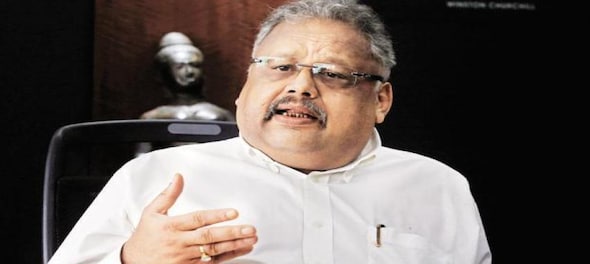
Akasa Air will be another low-cost airline flying on the Indian skies soon. Rakesh Jhunjhunwala, known as India's Warren Buffett for his successful stock investments with his Midas touch, plans to team up with former CEOs of IndiGo, the country's biggest carrier, and Jet Airways to tap into demand for domestic air travel. To be sure, his choice of co-promoters is excellent and could be the envy of his competitors-to-be. To have steered their companies through turbulence is an achievement by itself not to talk of the invaluable experience gained by the hands-on involvement.
But the airline is an industry where there are more important imponderables than turnaround time and track record of the co-promoters. It is beset with numerous regulatory hurdles, heavy sunk cost, high cost of aviation fuel on the back of backbreaking fuel taxation policy and the dog-eat-dog competition.
There are too many grounded aircrafts. With more than 600 commercial planes falling silent in India, a global airports’ grouping said finding “enough space” for parking aircraft is the main challenge faced by aerodrome operators. Though things have improved a wee bit since last year, in the Indian context, there were quite a few grounded airlines like Kingfisher and Jet Airways. How did Jhunjhunwala let the grass grow under his feet when Jet was lapped up recently by the Murari Lal Jalan and Kalrock Capital consortium virtually for a song, inflicting a haircut of 95 percent on the lenders in the IBC resolution proceedings before the NCLT?
It is all very well to see the greenfield project as a godsend for Boeing but as far as the Indian government is concerned, national interest should come first. Idle capacity is an eyesore besides being a cost-guzzler what with fixed costs being incurred no matter the planes are flying or not. Any government worth its salt should not give fresh permissions for a greenfield project in the face of unutilised capacity.
It is true that some of the aircrafts of the grounded airlines are unfit for flying what with extensive cannibalisation rendering them unready for take-off. Yet takeover should be the first option given the fact that the grounded airlines in dire need of new suitors besides being available cheap also bring with them a host of approvals and airport infrastructure very expensive and time-consuming to recreate.
It may be true that the long-term outlook for the domestic airline industry is bright but that is not reason enough to start from scratch and pile on the nation more and more aircrafts. Air India was criticised for buying about 100 aircrafts outright when its competitor Indigo negotiated a staggered delivery at a negotiated price. Indigo was hailed for planning the delivery of Airbus aircrafts to coincide with its growth whereas Air India committed the cardinal sin of piling up aircrafts only to keep them in the hangars. Talking of Air India which is permanently waiting for a suitor, Jhunjhunwala and his cohorts could have wangled it but the fear of inheriting a bloated staff might have put him off.
It is possible that Akasa may lease bulk of its aircrafts at least during its salad days but still takeover of an existing languishing airlines would have made a better sense given the fact that India is still a difficult place to do business, with regulatory hurdles and expensive and under-developed airports making LCCs less efficient than in overseas markets. Fortunately for Rakesh Jhunjhunwala, he has had the experience of Vijay Mallya to learn from. The fugitive Mallya courted the winner’s curse by forking out at least three times the value of Air Deccan shares for a 51 percent stake to Captain Gopinath who laughed all his way to the bank. In any case, the trend before NCLT has been niggardly payments and its concomitant heavy haircuts for creditors and clean shave for the shareholders.
Ultra low cost seems to be the USP of the airline in the making but will it be sustainable for long when low-cost airlines are fighting mainly on the fare front? Domestic airlines can learn from the telecom sector a lesson or two.
—S. Murlidharan is a CA by qualification and writes on economic issues, fiscal and commercial laws. The views expressed in the article are his own.
(Edited by : Ajay Vaishnav)
Check out our in-depth Market Coverage, Business News & get real-time Stock Market Updates on CNBC-TV18. Also, Watch our channels CNBC-TV18, CNBC Awaaz and CNBC Bajar Live on-the-go!


Telangana Lok Sabha elections 2024: Asaduddin Owaisi to Bandi Sanjay Kumar, a look at key candidates
May 11, 2024 3:32 PM
Lok Sabha elections 2024: Hyderabad to Kadapa, key seats in fourth phase
May 11, 2024 2:54 PM
Telangana Lok Sabha elections 2024: List of BRS candidates
May 11, 2024 1:55 PM

